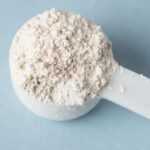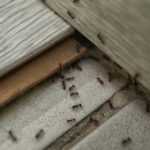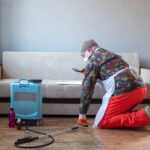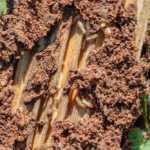Termite Treatment Methods: Identify, Prevent, and Eliminate
Discover effective termite treatment methods to identify, prevent, and eliminate infestations. Read on for practical solutions to protect your home.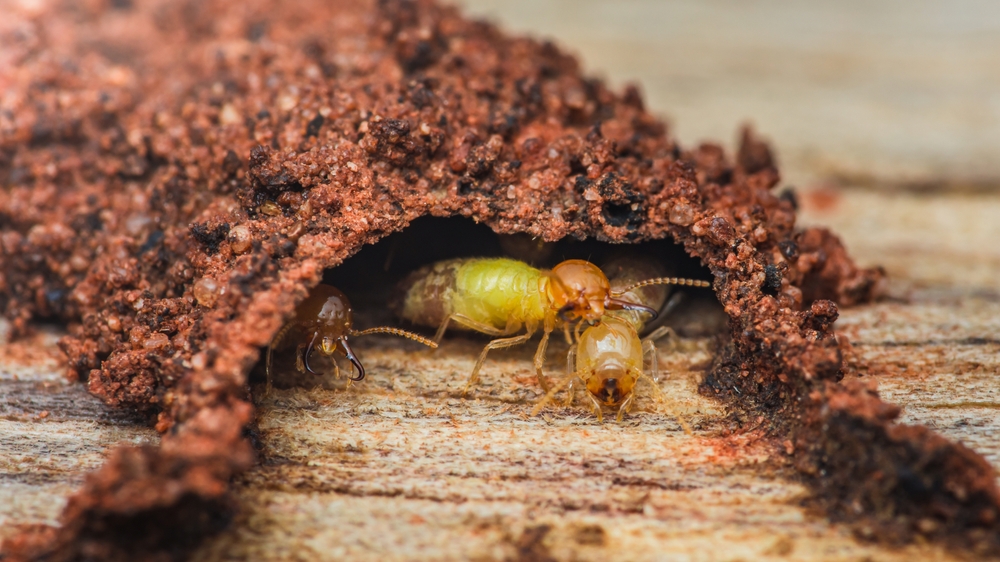
Best Termite Treatment Methods: Identification, Control, and Prevention
Looking for effective termite treatment options? This guide provides essential information on identifying termites, choosing the right treatment, and preventing future infestations.
- Early identification of termites is crucial; signs include mud tubes, hollow-sounding wood, and discarded wings.
- Effective termite treatments fall into three categories: chemical treatments, non-chemical options, and bait systems, each suited for different situations.
- Preventive measures such as home maintenance, pre-construction treatments, and regular inspections are key to avoiding costly termite infestations.
Identifying Termites
The first step in effective termite control is identifying the invaders. Termites are small insects, typically measuring between one-eighth and one inch in length, which makes it easy for them to go unnoticed until significant damage has occurred. They primarily digest cellulose, meaning they feed on dead wood and other materials containing cellulose.
Recognizing their diet and small size can help you identify signs of termite activity early on.
Common Types of Termites
The native subterranean termite is the most common type of termite found in the United States. This species is prevalent across the country. These termites build large colonies underground and create mud tubes to travel between their nests and food sources. Each termite type has unique characteristics and behaviors that make them distinguishable. For instance, subterranean termites are known for their massive colonies and extensive damage potential.
Other notable types include drywood termites and dampwood termites. Drywood termites infest dry wood and do not require contact with the soil, making them a common problem in coastal areas. Dampwood termites, on the other hand, prefer moist wood and are typically found in areas with high humidity. Understanding these differences is crucial for effective termite control.
Signs of Termite Infestation
Detecting a termite infestation early can save you from extensive damage. Key indicators include mud tubes, hollow-sounding wood, and discarded wings. Mud tubes, constructed by termites as pathways for moisture and protection, are often found around the foundation of your house.
Another telltale sign is hollow-sounding wood. When termites consume wood, they leave behind a thin veneer. Tapping on the wood can reveal a hollow sound, indicating that the wood has been hollowed out. Discarded wings are another sign; termites often leave these behind after swarming, and they can usually be found near windows or doors.
These signs are critical for early detection. If you spot any of these indicators, it’s essential to act quickly to prevent further damage and begin effective termite control measures.
Effective Termite Treatments
Once you’ve identified a termite infestation, the next step is to choose the right treatment method. Termite treatments can be broadly categorized into chemical treatments, non-chemical treatments, and bait systems. Each method has its own advantages and is suited to different situations.
Understanding these options will help you make an informed decision on how to best protect your home.
Chemical Treatments
Chemical treatments are a popular and effective way to kill termites. These treatments often involve termiticides, which are pesticides designed specifically for termite control products. Common active ingredients in termiticides include Bifenthrin, Fipronil, and Imidacloprid. These chemicals can be applied in liquid form or as foam, providing long-lasting protection for 8 to 12 years or longer.
One common technique is the soil-applied barrier treatment. This involves applying liquid termiticides to the soil around the foundation of the house, creating a barrier that termites cannot cross. Foam termiticides can also be injected into wall voids, which is particularly useful for controlling Formosan termites.
The application of termiticides should only be done by trained pest management professionals to prevent environmental contamination and ensure safety. Professionals have access to advanced technologies and methods not available to the general public. Hiring licensed and trained professionals ensures proper termite control.
Non-Chemical Treatments
Non-chemical treatments are an excellent alternative for those who prefer not to use pesticides. These methods include physical barriers, moisture control, and biological control. Physical barriers, such as steel mesh and specific types of sand, can effectively prevent termite entry. Moisture control is also essential, as termites thrive in damp environments; keeping the soil around your home dry can deter these pests.
Natural alternatives like essential oils and boric acid can also be effective for minor termite issues when applied correctly. For instance, boric acid can disrupt the termite’s digestive system, effectively killing them over time. These non-chemical treatments can provide a more environmentally friendly approach to termite control.
Bait Systems
Bait systems are a strategic way to control termite colonies. These systems utilize slow-acting insecticides that termites consume and share with their colony, effectively eliminating the entire colony over time. The most common type of termite baits involves in-ground baiting stations placed around the perimeter of buildings.
These termite bait stations contain cellulose baits laced with slow-acting insecticides. As foraging termites consume the bait and return to their colony, the insecticide spreads, gradually killing the colony. Bait systems are particularly effective because they target termites at their source, providing a long-term solution to termite infestations.
DIY vs. Professional Termite Control
When it comes to termite control, homeowners often face the dilemma of choosing between DIY methods and professional pest control services. Both approaches have their own set of benefits and drawbacks.
Understanding these differences can help you make an informed decision that best suits your needs and circumstances.
Benefits of DIY Termite Treatments
DIY termite treatments offer several advantages, primarily in terms of cost and convenience. Using DIY termite products can save you money compared to hiring professional pest control services. Additionally, these products are readily available at local stores, providing immediate solutions for homeowners dealing with minor infestations.
Another benefit is the flexibility to apply treatments at your convenience. This can be particularly useful for busy homeowners who may not have the time to schedule professional services. However, it’s important to follow the instructions carefully to ensure effectiveness and safety.
Advantages of Professional Services
Professional pest control services offer a level of expertise and thoroughness that DIY methods often lack. Professionals use advanced techniques to assess and treat both visible and hidden termite colonies, ensuring thorough eradication. They can also identify termite types and their habits, which aids in effective treatment strategies.
Engaging a licensed pest control professional is vital for effectively managing a termite infestation. Companies like Responsible Pest & Scorpion Control, which serve areas including Greater Metro Phoenix, Mesa, and Tucson, AZ, are renowned for their effective termite treatments and excellent customer service. Many customers commend the technicians for their expertise and thoroughness during termite inspections and treatments.
Preventing Termite Infestations
Prevention is always better than cure, especially when it comes to termites. Implementing preventive measures can save you from the headache and cost of dealing with a full-blown termite infestation.
From regular home maintenance to pre-construction treatments and annual inspections, there are several ways to keep your home pest free and termite-free.
Home Maintenance Tips
Maintaining a dry environment around your home is crucial to deter termites. Termites thrive in moisture-rich areas, so it’s essential to keep the soil around the foundation dry. Keeping wood components of your house at least 18 inches above the soil can also help prevent termite intrusion.
Investing in professional pest control can save money in the long run. Expert pest control services offer preventative measures that can save homeowners from costly repairs in the future. Regular inspections and timely maintenance are key to keeping your home safe from these silent destroyers.
Pre-Construction Treatments
Pre-construction treatments are essential for preventing termite infestations in new buildings. Soil treatments before construction can create a barrier against termite entry, significantly reducing the risk of infestation. These treatments involve applying termiticides to the soil, which provides long-lasting protection.
Physical barriers, such as steel mesh and specific types of sand, can also be effective in preventing termite access. Incorporating these measures during the construction phase can make a structure less appealing to termites and facilitate future inspections.
Regular Inspections
Regular inspections are a crucial part of termite prevention. Annual termite inspections help detect infestations early, preventing costly repairs and significant damage. These inspections can catch early signs of termite activity, allowing for timely intervention.
Many long-term clients report peace of mind knowing their homes have remained termite-free for over ten years thanks to ongoing services from Responsible Pest & Scorpion Control. Regular inspections not only help identify potential infestations but also ensure that any necessary treatments are applied promptly to minimize damage.
What to Do If You Have Termites
If you suspect a termite infestation, swift action is crucial to minimize damage and effectively manage the situation. Identifying visible signs and containing the infested area are the first steps you should take.
Following this, contacting a professional for a thorough assessment and treatment is essential.
Immediate Steps
Taking immediate steps to contain a termite infestation can significantly reduce damage to your home. One effective measure is sealing the infested area with plastic sheeting to prevent termites from spreading until a professional arrives. You can also use a flathead screwdriver to probe wood for hollow spots, indicating termite damage.
Sealing entry points can help contain the infestation and prevent further spread. Swift action is crucial to managing the infestation and making eradication easier. These immediate steps can buy you time while waiting for professional help, ensuring that the damage is kept to a minimum.
Contacting Professionals
Once you’ve taken immediate steps to contain the infestation, the next critical step is to contact pest control professionals. Schedule an inspection with a pest control service to develop a tailored treatment plan.
Professionals have the expertise to assess the extent of the infestation and access hard-to-reach areas, ensuring thorough treatment and long-term protection.
Safe Use of Pesticides
Using pesticides safely is crucial for effective termite control and the safety of your family and pets. The EPA regulates all pesticides to ensure they meet safety standards, protecting both human health and the environment.
Adhering to established guidelines and label instructions minimizes risks and ensures safe application.
Reading Product Labels
Adhering to the instructions on pesticide labels is crucial for safety and effectiveness. A pesticide label outlines essential information such as active ingredients, safety precautions, and proper usage instructions. Termiticides used for barrier treatments must be specifically labeled for that use to ensure effectiveness and safety.
Failure to follow label instructions can lead to ineffective pest control and increased risks to human health and the environment. By carefully reading and adhering to product labels, you can achieve the desired pest control outcomes while ensuring safety.
Handling Misapplications
Handling pesticide misapplications correctly is vital to minimize risks. Many termiticides are highly toxic, and proper usage maximizes effectiveness while reducing hazards. If you have a complaint about pesticide misapplication, reach out to your state pesticide regulatory agency. They will assist you with your concerns.
For expert answers regarding pesticide-related issues, you can contact the National Pesticide Information Center (NPIC) at 1-800-858-7378.
Customer Testimonials
Customer testimonials provide valuable insights into the effectiveness and reliability of termite treatment services. Long-term customers have consistently expressed satisfaction with Responsible Pest & Scorpion Control, some relying on their services for over a decade.
New customers are encouraged to experience the reliable and effective termite treatment services that have garnered positive feedback over the years.
Long-term Satisfaction
One family has relied on Responsible Pest & Scorpion Control for ten years, highlighting the long-lasting protection and effectiveness of their services. This long-term satisfaction speaks volumes about the quality and reliability of their termite control methods, ensuring that homes remain pest-free over the years.
Service Excellence
Customers frequently praise the knowledge and expertise of the servicemen, noting their professionalism and the effectiveness of the products used in termite treatments. This high level of customer satisfaction and loyalty towards Responsible Pest & Scorpion Control underscores the excellence of their services.
Identifying, controlling, and preventing termite infestations is crucial for maintaining the integrity of your home. From recognizing the signs of infestation to choosing effective treatment methods and implementing preventive measures, this guide offers comprehensive insights into termite control. Whether you opt for DIY solutions or professional services, taking timely action is essential. Trustworthy companies like Responsible Pest & Scorpion Control provide the expertise and reliability needed to keep your home safe from termites. Take the necessary steps today to protect your home and enjoy peace of mind.
Frequently Asked Questions
What is the most effective treatment for termites?
The most effective treatment for termites includes using termite baiting stations, which is eco-friendly and ultimately destroys the colony by feeding bait to the termites. Additionally, soil-applied barrier treatments with properly labeled termiticides can serve as a preventative measure against infestations.
What are the most common signs of a termite infestation?
The most common signs of a termite infestation are mud tubes, hollow-sounding wood, and discarded wings. If you notice any of these indicators, it’s crucial to take action immediately.
What are the benefits of professional termite control services?
Professional termite control services offer thorough assessment and treatment of both visible and hidden termite colonies, ensuring effective eradication. This helps protect your property from extensive damage and gives you peace of mind.
How can I prevent termite infestations in my home?
To prevent termite infestations in your home, prioritize regular maintenance, implement pre-construction treatments, and schedule annual inspections. This proactive approach ensures early detection and minimizes risk.
What should I do if I discover termites in my home?
If you discover termites in your home, it is crucial to act quickly by containing the infestation and contacting a professional pest control service for a thorough assessment and treatment. This will help prevent further damage to your property.
